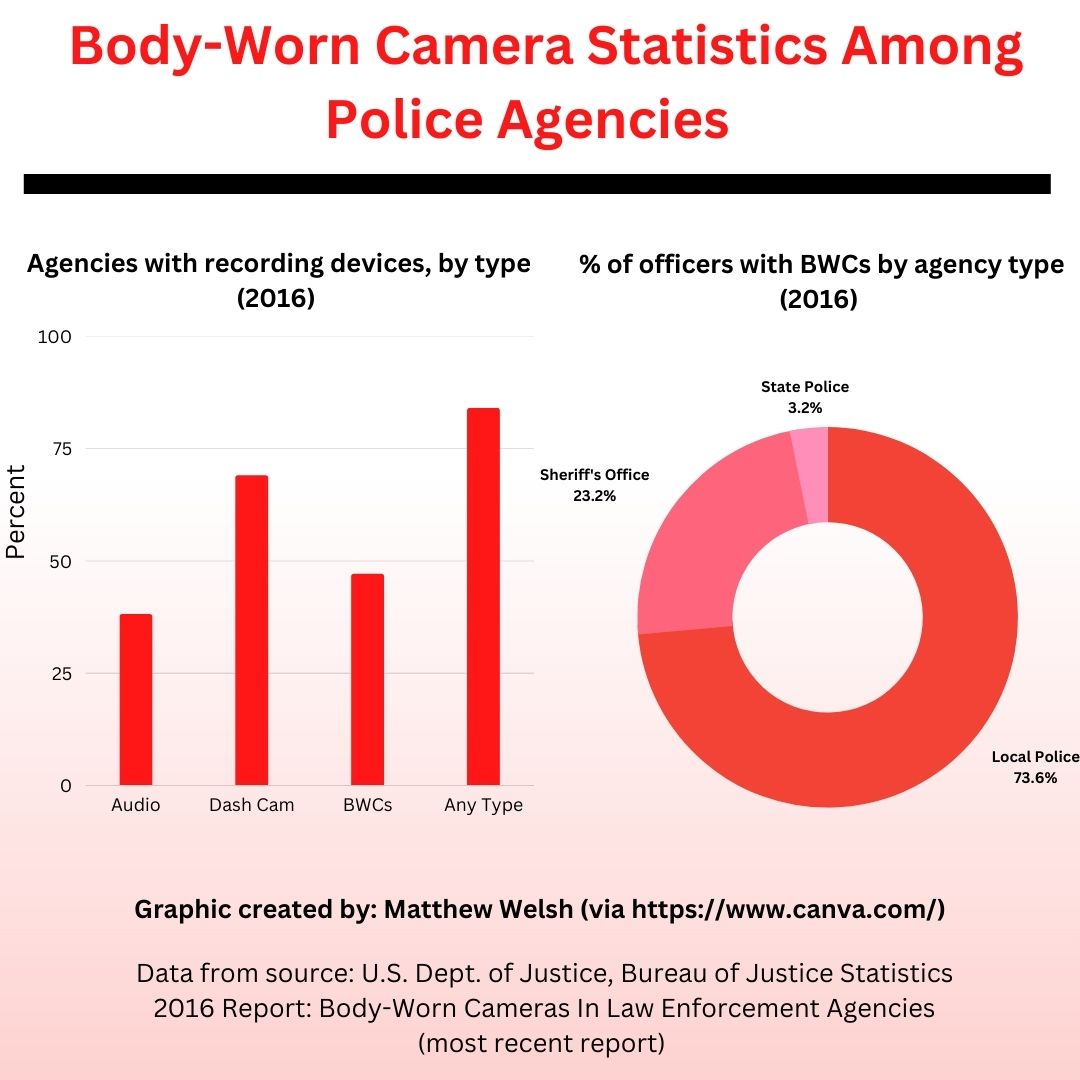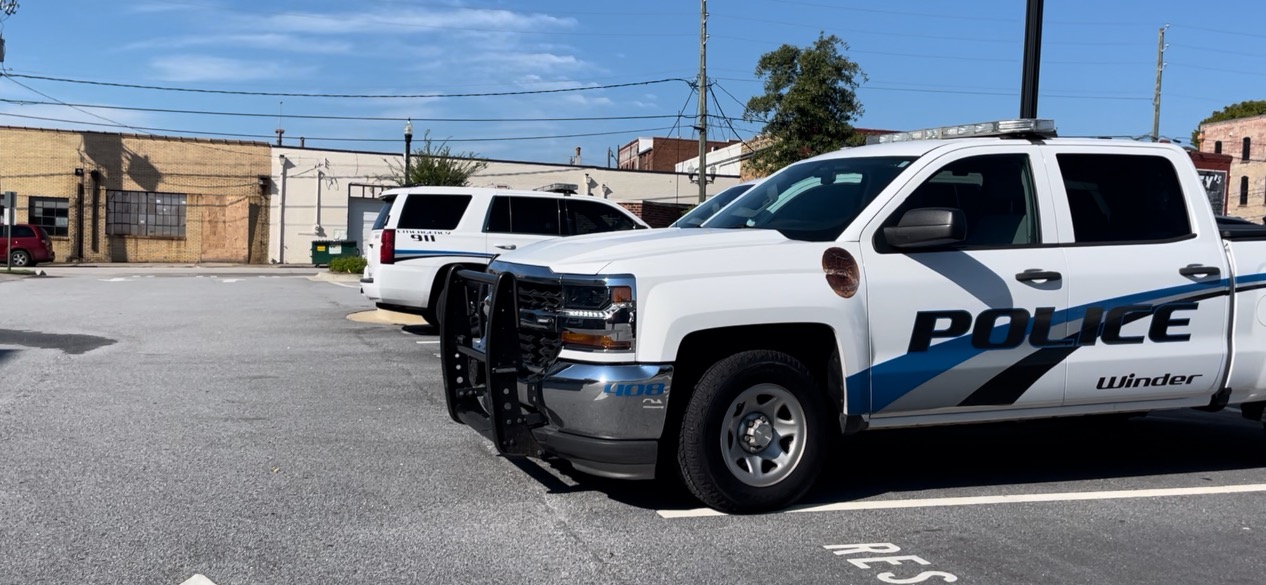The Winder Police Department is embracing new technological advantages in a world of rapidly changing police tactics. In early August, the WPD issued new body-worn camera technology to its force, replacing the prior camera system that police chief Jim Fullington said was implemented in 2015 and is no longer being produced.
Why It’s Newsworthy:Police Chief Jim Fullington said the new WatchGuard V300 cameras offer several benefits including higher resolution video feedback and an opportunity to increase what he called police-community “transparency” in Winder. This most recent move by Winder’s force, although not directly inspired by the country’s now years-long tension between police agencies and communities, is a move Fullington said will only help improve and amend any misconceptions the community may have of his force.
“There’s been some negative perceptions in the general public over the past several years, and there have been officers in other jurisdictions that have abused their positions over the past several years,” Fullington said. “So, with the combination of that, and the technology that has become more available, [the body-worn cameras] protect our officers and protect the public.”
Body Camera Implementation Trends
According to a 2016 study released by the U.S. Department of Justice’s Bureau of Justice Statistics, 47% of general-purpose law agencies in the United States had acquired body-worn cameras. Sixty-nine percent of the surveyed agencies had dashboard cameras, and 38% used personal audio recorders.
Of the departments possessing body-worn cameras, the report listed that 60% of the cameras in local departments had been fully administered to personnel, and that 86% of those cameras administered at all general-purpose agencies, were done in conjunction with a formal body camera usage policy.
Fullington said his department’s policy directly instructs a staff of 35-40 sworn officers, depending on man power, in the usage and implementation of the cameras. He said general policy is for all patrol officers to wear body cameras throughout a shift, and that any investigator interacting with the public, must also wear a camera.
“We are able to go back and look at the information that comes in, and a large amount of the time we are then able to show what the officer did or didn’t do,” Fullington said. “That helps us to mitigate complaints and can even help in investigations.”
An updated 2021 study about body-worn cameras, published by the University of Chicago Crime Lab and the Council on Criminal Justice’s Task Force on Policing, examined the actual effectiveness of equipment.
The body’s research concluded that a key result of body-worn cameras is a reduction in police use of force. Among the agencies reviewed, police use of force in fatal and non-fatal circumstances dropped 10%, while police complaints dropped 17% overall.
Further, the researchers estimated the dollar amount assigned to the camera’s benefits — cost reductions in addressing fewer complaints and complaint investigations — outweighs the dollar amount assigned to purchasing and installing body-worn camera technology in a 5-to-1 ratio.

Research Inconsistencies and Effects
Current University of Georgia researcher and professor of public administration and policy, Inkyu Kang, has studied American policing tactics in America since 2016. Born in South Korea, Kang graduated from the Korean National Police University and served as an inspector in the country’s national police before coming to America to pursue a Ph.D. in public administration.
Kang believes any causal relationships between the rise in police body camera usage and a rise of public protests in the wake of 2020’s call for police reform, cannot yet be established.
“We will need to wait for another year or two to actually have more data … and a significant number of data points to actually tease that out,” Kang said. “But I would assume, personally, [the protests] could increase the level of pressure put on police forces to increase transparency and accountability.”
Kang said that although he thinks transparency increases with the implementation of body-worn cameras, there are underlying intricacies in their roll-out.
“Assuming that there is also well-organized agency policy that governs police officers’ discretion of when to activate the camera or publish the records of the camera, if that part is well-governed, you can safely say that transparency will increase,” Kang said.
But in the absence of clear policy, he said accountability may in some cases be diminished, including how officers wearing the cameras may respond, how agencies administer camera policy and how officers alter tactics under surveillance.
“Now that [police officers] are being watched, they may have this incentive to be more strategic about their performance,” Kang said. “Maybe they can be more aggressive against more minor crimes as opposed to more serious threats, so that to an extent, demonstrate that they are being proactive or performative.”
He also said both police and the public have positive views of the use of body-worn cameras, in that they provide a truthful representation of events for both sides, instead of relying on one party’s testament.
Fullington said he shares a similar outlook within his department’s work, adding that body-worn cameras offer evidence and events forgotten amidst an emotional exchange in the field.
“With using this technology, there is less of a reason for people to not trust the police without any reasonable ground,” Kang said. “But there are a lot of complexities to it, so it’s really hard to make a definitive argument that this will have a positive effect.”
Matthew Welsh is a senior majoring in journalism and political science and is pursuing a sports media certificate.









Show Comments (0)